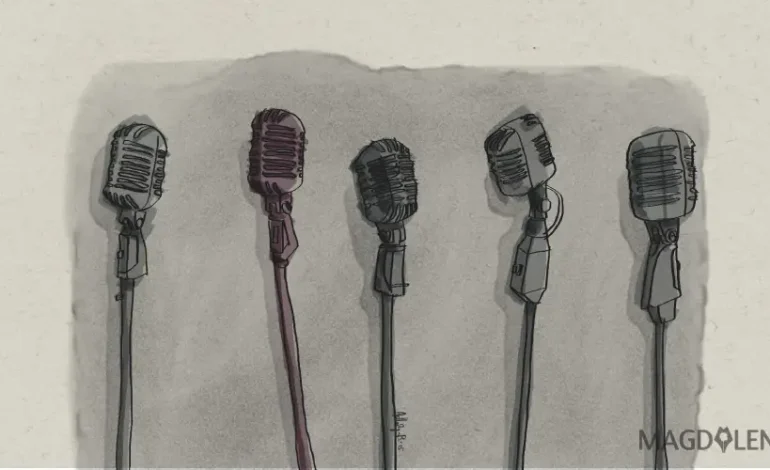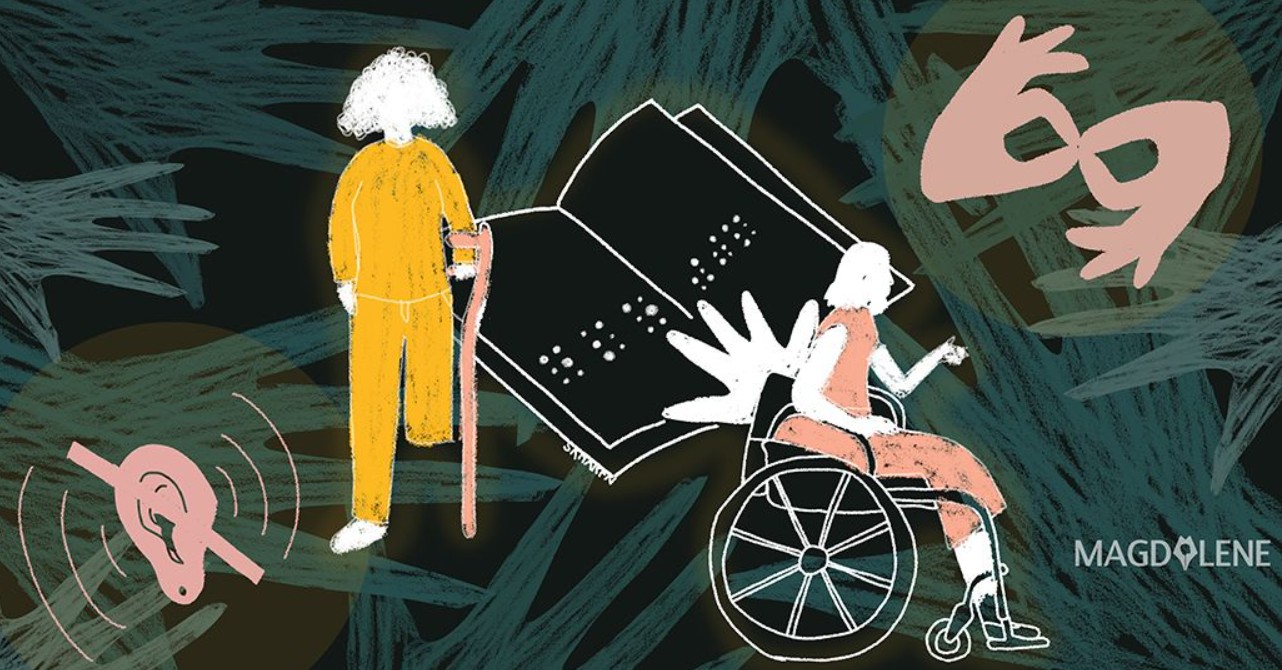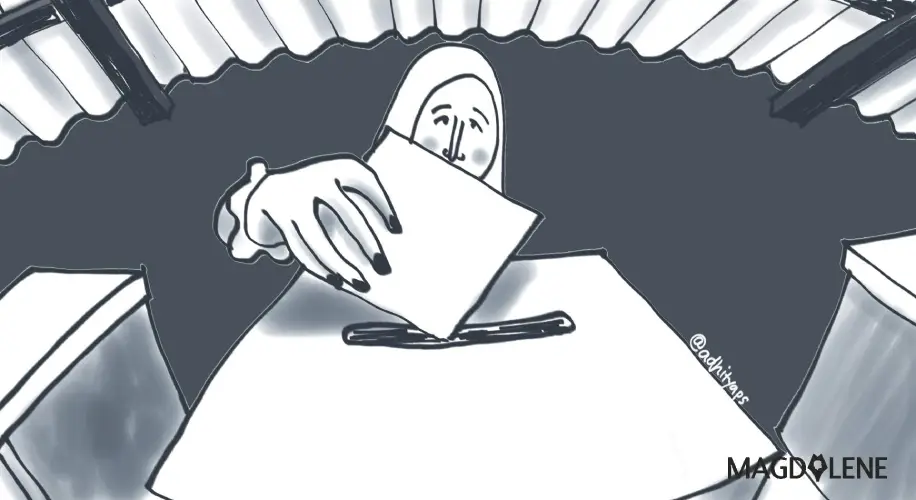In Praise of Lana Del Rey: The Anti-Popstar Popstar

What would have been a standard-fare burst of excitement of having your favorite artist unleash not one but two new singles within the space of one week turned into a profound revaluation of their craft and subsequently their place in the pantheon of modern pop music.
This is precisely what transpired on my end upon ingesting the latest offerings by American singer-songwriter Lana Del Rey: “Mariners Apartment Complex” and “Venice Bitch”, two slow-burning, guitar-heavy, folky concoctions that, in true LDR fashion, exude pangs of melancholy and nostalgia in equal measure. Both songs are more or less the aural equivalent of gazing dreamily and absent-mindedly outside the window on a moving vehicle, wind blowing, recalling past love memories.
In the “Venice Beach” video, that is exactly what happens as the song meanders into hazy, wordless psychedelia, suffused with Del Rey’s ethereal harmonies over curlicuing guitar riffs, glistening piano ornaments and reverbed, distant drum beats. In theory, it sounds like the type of song that would require plenty of sheer will and patience of its listeners to endure each and every second of its near 10-minute running time. In practice, the song simply bowls you over and caresses you, it might as well be a 3-minute normal pop song, as per the initial reaction of Del Rey’s managers.
Her response? “It’s the end of summer, some people want to drive around for 10 minutes and get lost in electric guitar.” Her managers should have known better anyway: after all, languid, cinematic soundscape has been her bread and butter throughout her decade-long career, inevitably turning her into the poster child for sad girls everywhere. Heck, she even has a song with said title.
“Sad” is probably the most used adjective when describing, or discussing, Del Rey’s music and persona. It was the premise of her biggest hit to date, “Summertime Sadness”. Her past fetishization of death exacerbated this notion (lest we forget her breakthrough album is called Born To Die). Her early songs were rife with tales of toxic, co-dependent relationships, father complex and drug abuse.
Zigging when expected to zag is certainly a mentality deeply embedded in Del Rey’s psyche.

The Lana Del Rey of “Mariners Apartment Complex”, on the other hand, couldn’t rebuff this notion any harder. “You took my sadness out of context,” she asserts, before locating where the misreading took place. Del Rey has said that the song was inspired by a man she was seeing who chalked up their liaison to the fact both of them were “really messed up,” to which she took offense. “Who I am is a big time believer that people can change,” she reiterates further down the song. “When everyone’s talking, you can make a stand.”
This change of heart was a gradual one for Del Rey, and did not fully come to the surface until last year’s stellar (and aptly titled) Lust for Life, no doubt prompted by the rise of Trumpism in her home turf. This is only apropos as Del Rey’s penchant for Americana themes – and in turn subverting them – is an inextricable element of her aesthetic (she reimagined herself as both Marilyn Monroe and Jacqueline Kennedy in her “National Anthem” video, with rapper A$AP Rocky as the black John F. Kennedy). The question was: how was she going to reconcile her nationalism in the age of Trump? She chose to rise above it and keep dancing instead.
“It’s certainly uncomfortable [to be romantic about America in the age of Trump],” she observed in an interview with Pitchfork. “It’s a transitional period, and I’m super aware of that. I think it would be inappropriate to be in France with an American flag. It would feel weird to me now – it didn’t feel weird in 2013.”
What has stayed unchanged of Del Rey whether in 2013 or 2018, however, is her nonchalant attitude towards fitting in, her apparent predilection to dancing to the beat of her drums. This is all the more evident in “Complex” and “Bitch”, both of which devoid of the grand, sweeping instrumentation that typically underscores her outings. Instead, she opted for a looser, more organic sonic, more reminiscent of her early recordings as May Jailer and Lizzy Grant.
Although downtrodden melodrama informs the overarching tone of her oeuvre, it is Del Rey’s astute ability to showcase its varied textures and facets via her music that remains her calling card. The chorus of the silky, hypnotic “West Coast”, for instance, slows down rather than speeds up, much to the chagrin of her label executives. “When I played the song, they were really not happy that it slipped into an even slower BPM for the chorus,” she recounts in an interview with The Guardian of the lead single from 2014’s Ultraviolence. The song eventually became her second – and so far, last – top 20 hit in the United States.
Zigging when expected to zag is certainly a mentality deeply embedded in Del Rey’s psyche. Despite having been active in the music industry since the mid-2000s, it wasn’t until earlier this decade that her career took off on the strength of 2011’s “Video Games”. The self-directed video (it is noteworthy that Del Rey comes up with the treatment to all her videos) proved to be a viral hit during the early proliferation of the term and brought Del Rey and her mopey, sepia-tinted shtick into prominence at the height of the EDM craze.
Questions and assumptions regarding her authenticity began to emerge, reaching its zenith following her much-maligned performance on Saturday Night Live. Aside from becoming the lightning rod for unwarranted controversy (no doubt laden with sexism and misogyny, what with her dainty, ultra-feminine mien), Del Rey also served as a martyr of sorts that contributed to the blurring between ‘indie’ and ‘mainstream’ over the course of the 2010s.
One only needs to tune in to FM radio these days to hear Del Rey’s influence on pop music’s current bent for affected, breathy vocal styling and nihilistic ruminations over murky, brooding hip-hop beats.
It is concurrently during this period of time that she quietly solidified herself as the most prolific, influential and vital act in pop music, releasing a new album biennially (2015’s Honeymoon even came merely a year after Ultraviolence), while deftly and skillfully moving through the past, present and future in her every artistic incarnation. One only needs to tune in to FM radio these days to hear Del Rey’s influence on pop music’s current bent for affected, breathy vocal styling and nihilistic ruminations over murky, brooding hip-hop beats.
At the same time, it goes without saying that nostalgia is part and parcel of Del Rey’s persona; it’s only fitting that the “Video Games” visual – replete with shots from old movies and footage of 90s actress Paz de la Huerta woozy and inebriated – was unleashed in the beginning of the decade, as if portending this generation’s penchant for simpler, happier times. (While we’re at it, do check out French writer Catherine Vigier’s fascinating, spot-on read on Del Rey).
Covering Leonard Cohen and Nina Simone may be standard practice, but so is unironically claiming to be inspired by Britney Spears. In addition to a bevy of contemporary rappers, she counts the likes of Stevie Nicks, Courtney Love and Cat Power (Del Rey’s obvious forebear in durable distress) among her supporters and collaborators. She attracts old-timer rockists as much as she endears her gay following. This is a balance far trickier to tread than one might assume, yet Del Rey has been able to pull it off with impressive ease and grace during the seven years she has been in the mainstream consciousness.
As the forthcoming release of Norman Fucking Rockwell (a quintessential Lana Del Rey title as we know it) looms on the horizon, it is pertinent to reappraise not only Del Rey’s artistry, but also idiosyncrasy – a trait less commonly attached to present-day pop auteurs. “Can’t a girl just do the best she can?” Del Rey ponders on “Complex”, but it’s safe to think that she knows the answer already.
Fajar Zakhri may reside in Jakarta, but is mentally somewhere down under. He writes about things that pique his interest (which means they’re mostly music-related) and dreams of moving to the suburbs and being a good wife. In the meantime, feel free to drop him a good line or two via Twitter (@whatsthefaz) or Instagram (@whatsthefazzz).






















